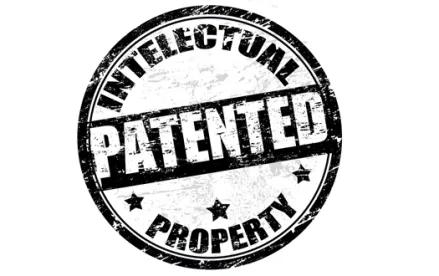Fidelity Nat’l Info. Servs., Inc. v. DataTreasury Corp.
Addressing the subject-matter eligibility of a business-method patent for scanning receipts, encrypting the data, and then transmitting it to a cloud server, the Patent Trial and Appeal Board (PTAB or Board) concluded that the patent was not directed to patent-eligible subject matter. As the Board explained, transferring encrypted data from one location to another was an abstract idea and implementing that abstract idea on generic computer components failed to provide meaningful limitations to the abstract idea. Fidelity Nat’l Info. Servs., Inc. v. DataTreasury Corp., CBM2014-00020 (PTAB, Apr. 29, 2015) (Tierney, APJ).
DataTreasury’s patent claimed a system for capturing electronic and paper transactions from various activities—including banking and consumer transactions—and then managing and storing that information. In particular, the claims recited scanning the documents using a scanner attached to a general purpose computer. The general purpose computer encrypted the data and then transmitted it to a cloud service to manage the data.
Applying the two-step analysis in Alice, the Board first determined that DataTreasury’s claims were directed to an abstract idea. In many cases, whether a patent claims an abstract idea depends on how the claims are characterized. Here, the PTAB characterized DataTreasury’s claims as “transferring [encrypted] information from one location to another.” Under this characterization, the claims were found to be directed to an abstract idea.
DataTreasury attempted to characterize the claims in a more tangible way, as directed to scanning or imaging of documents and receipts. Although scanning documents involves physical scanners and documents, the Board disagreed with the patent owner’s characterization of the invention and explained that the mere use of physical objects does not preclude a determination that the claims are directed to an abstract idea. Also, the Board rejected DataTreasury’s argument that its claims were not directed to abstract ideas because they were routine business practices. Rather the Board stated that simply because an idea is widely used does not preclude a determination that the practice is an abstract idea, as shown by the widely used ideas of risk hedging in Bilski and intermediated settlement in Alice.
DataTreasury also argued that the claimed encryption was not an abstract idea because numerous other patents related to encryption have issued. Relatedly, DataTreasury also relied on TQP, a 2014 U.S. District Court for the Eastern District of Texas opinion authored by Federal Circuit Judge Bryson (IP Update, Vol. 17, No. 3) in which the court denied a motion for summary judgment that a patent related to encryption was directed to patent-ineligible subject matter. The Board disagreed, explaining that encryption can be an abstract idea despite the fact that other patent eligible patents claimed encryption-related inventions. As the Board noted, those patents, although claiming the abstract idea of encryption, could be saved by the second step of the Alice analysis, under which the claims may be limited by an inventive concept that prevented them from pre-empting the abstract idea.
Applying the second step of the Alice analysis, the Board then determined that DataTreasury’s claims did not contain meaningful limitations beyond the abstract idea. Although the claims recited specific structural components—subsystems in various locations that transmitted data between themselves—these components were merely conventional objects grafted onto an underlying abstract idea. DataTreasury itself admitted that the claims did not require specialized components and could instead be implemented on generic hardware. The Board also concluded that the invention did not satisfy the machine-or-transformation test because the claims did not recite a transformed article. Instead, the claims merely taught duplicating financial data and then transferring that data. Thus, the Board concluded that DataTreasury’s claims were directed to patent-ineligible subject matter.




 />i
/>i

